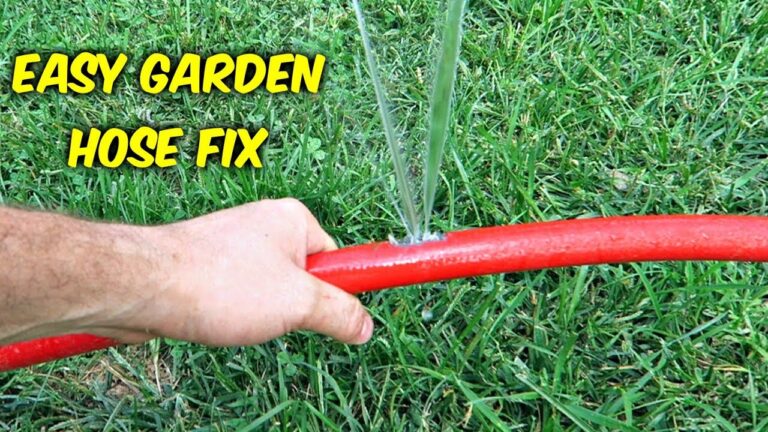
Fix rather than change your most essential lawn care accessory with these snappy and simple strategies.
5 Tips for Repairing a Garden Hose that Leaks
At the point when flawless, your nursery hose is a trusty instrument for hydrating your yard, flushing flotsam and jetsam from your deck, and pretty much every outside task requiring water. However, a twisted, torn, or in any case broken hose squanders water and makes open air errands more troublesome. Also, you frequently just find there’s an issue after you’ve begun some work when heading out to purchase another hose is darned awkward. Luckily, it’s genuinely simple to expand its life by fixing a nursery hose with the shrewd (and modest!) DIY fixes we’ve gathered here. Peruse on to figure out how.
1. Seal all little openings or hole with electrical tape.
Bothersome pinholes—regularly because of cut by a nail or other sharp article—are frequently simply obvious to the eye when you interface the water and spot little, spring like sprays of water from the penetrated segment of the hose. Such little holes can coordinate water away from the yard or plants you’re focusing on—also spurt you in the eye! Electrical tape, generally made of a PVC backing and an elastic based glue, has the flexibility, protection, and climate opposition expected to adequately plug these openings, however you may ultimately require a hose mender (see beneath) if spills continue.
Mood killer the water, detach the hose, and wipe it dry with a cloth. Imprint the penetrated area with a marker, at that point fold electrical tape over the checked segment, covering a couple of times to guarantee great adherence. Take care not to wrap so firmly that the hose wrinkles, as this may block water stream. Reconnect the hose to the nozzle or a shower spout and turn on the water to check that you’ve tackled the issue.
2. Fix enormous tears with a hose mender.
Bigger tears in a hose regularly come about because of catching on a tree or bramble, breaking with openness to outrageous warmth or cold, or biting by a mischievous pet. Water will spout from such tears when you turn on the tap, however a hose mender—a short plastic or metal cylinder that replaces the harmed segment, accessible (e.g., Nelson Compression Fit Hose Mender on Amazon)— can act the hero.
Mood killer the water, detach the hose, and eliminate the torn segment with a hose shaper or nursery shears. Join the slice closures of the hose to the connectors of the hose mender, curving the two collars on the mender clockwise to fix. Reconnect the hose to the nozzle or a spout and turn on the water to confirm there are no holes.
3. Fix a cracked coupling with another hose gasket.
One of the peskiest nursery hose issues is a hole in the coupling: the metal or plastic fitting found on the two closures of a hose used to interface the hose to the nozzle, a spout, or a sprinkler. In the event that you recognize a consistent trickle coming from the hose couplings when you associate it to a source, the gasket may should be supplanted. Gaskets normally wear with time and water openness, so plan to change out your hose gaskets each three to 10 years.
Mood killer the water, detach the cracked hose end, and use needle-ease forceps to pull out the current gasket inside the coupling on that hose end. Utilize your fingers to push the new gasket inside the hose coupling. By and large, the thicker O-ring gaskets (e.g., Nelson O-ring, accessible on Amazon), the more watertight the seal; level gaskets don’t shape to the forms of the coupling very too. Reconnect the hose to a nozzle or spout and turn on the water to guarantee the coupling does not hole anymore.
4. Fix a cracked coupling with another hose gasket.
One of the peskiest nursery hose issues is a hole in the coupling: the metal or plastic fitting found on the two closures of a hose used to interface the hose to the nozzle, a spout, or a sprinkler. In the event that you recognize a consistent trickle coming from the hose couplings when you associate it to a source, the gasket may should be supplanted. Gaskets normally wear with time and water openness, so plan to change out your hose gaskets each three to 10 years.
Mood killer the water, detach the cracked hose end, and use needle-ease forceps to pull out the current gasket inside the coupling on that hose end. Utilize your fingers to push the new gasket inside the hose coupling. By and large, the thicker O-ring gaskets (e.g., Nelson O-ring, accessible on Amazon), the more watertight the seal; level gaskets don’t shape to the forms of the coupling very too. Reconnect the hose to a nozzle or spout and turn on the water to guarantee the coupling does not hole anymore.
5. Shield your hose to evade future harm.
Utilize these tips to fight off future harm to your nursery hose and guarantee release free yard support:
Try not to leave a hose outside in outrageous warmth or cold. Existing wrinkles in a hose can advance into breaks with openness to high warmth or if cold water inside the hose freezes. A cool, dry climate like the carport is best for hose stockpiling.
Softly curl and store your hose on a hose truck (e.g., Ironton Hose Reel Cart, accessible on Amazon) when not being used to keep it wrinkle free (wrinkles can at last prompt tears). A hose truck will likewise make it simpler to ship your hose to and from the carport or shed to the yard without the hose catching on trees or brambles, hardware, and other sharp articles or rough surfaces that can cause openings or tears in it.
In the event that you like to drape tires on the divider, consider utilizing a divider mounted wheel holder intended for tire stockpiling (e.g., FibreHead Wheel Hanger set, accessible on Amazon). Never drape a hose on an enormous nail, which can punch holes in a hose.
Channel any excess water in a hose after a watering meeting by showering it out with a spout and afterward lifting and delicately shaking the hose with the hose end looking down to eliminate any extra water. Standing water can climate the gaskets inside the hose and lessen the respectability of their seal after some time.
In the event that you should supplant your hose, pick one made of elastic rather than vinyl. Elastic hoses will in general be more impervious to temperature changes and are more averse to break over the long haul than vinyl counterparts.
You May ALso Like

Universal Air Conditioner Remote Control Codes

How to Fake Cable Provider Login forever work
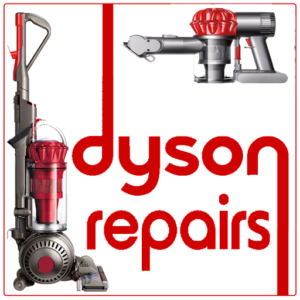
Dyson Repairs Near Me | Servicing In London & Home Counties

How To Fix Samsung TV Volume Stuck ?

Why Won’t My TV Connect to WIFI | How To Fix?

Hulu Login not working | Hulu Activate Not Working
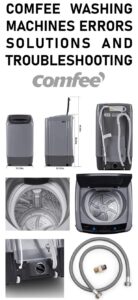
Comfee Washing Machine Setup And Errors Codes
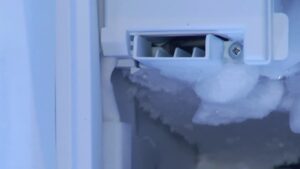
Samsung ice maker freezing up | How To Force Defrost Mode
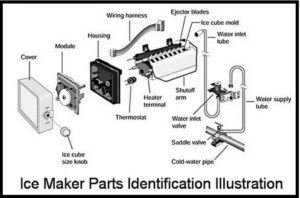
Whirlpool ice maker not working – How To Troubleshoot?
